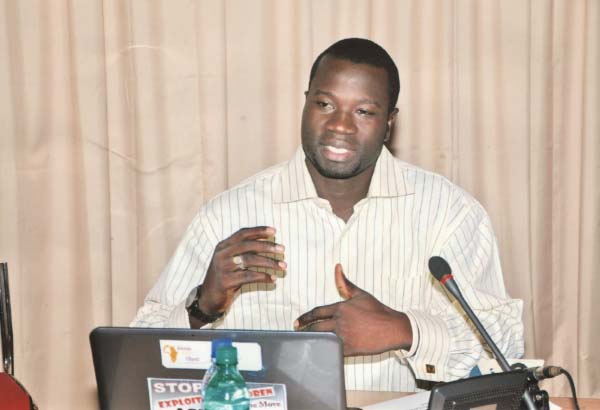By Mariama Sima & Awa Sowe
Youth is the future of every nation; hence, empowering young people with skills can have positive ripple effect on the economy of a nation. This empowerment becomes even more necessary for young people who have taken ultimate risks on their lives by making some dangerous journeys in search of opportunities. Over the last decade, so many Gambian youths have embarked on irregular journey (back way) to Europe, mainly. While many have succeeded in reaching the sores of Europe many more have either died on the way or have returned, needing reintegration assistance of many forms.
Thus, the Government of The Gambia through its Youth and Sports Ministry, and satellite institutions has put in place supportive mechanisms for the migrant returnees to effectively reintegrate into the Gambian society. Reintegration support aims to address returnees’ economic, social and psychosocial needs and foster inclusion of communities of return in reintegration planning and support whenever possible. This is done mainly through technical skills development including entrepreneurship.
The Ministry of Youth and Sports in collaboration with the National Youth Council (NYC) and agencies such as the National Enterprise Development Initiative (NEDI), National Youth Service Scheme (NYSS) and President’s International Awards (PIA) among others, have been providing migrant returnees and other young potential migrants with livelihood skills such as carpentry, welding, tailoring as well as entrepreneurship training.
The creation of new businesses through entrepreneurship has become the main economic driving force in numerous countries not only because it creates employment but also contributes to the Gross Domestic Product (GDP). In addition, entrepreneurs provide solutions that are innovative, sustainable and effective. To support the growth of these businesses some of the returnees also benefited from loan and grant schemes provided by the Ministry of Youth and Sports and partners through its satellite institutions.
The Programme Manager, NEDI, Mr Abdukarim Daffeh, said that there is a policy called ‘Positive Discriminations’, which prioritizes migrant returnees in accessing opportunities.
"We always give priority to migrant returnees whenever we are organizing training on entrepreneurship. We have also provided seven grants and three loans to migrant returnees in the Central, Lower and West Coast Regions,” Daffeh stated.
According to Mr Daffeh in 2020, they provided basic entrepreneurship training for more than 46 migrant returnees across the country and provided them with coaching and mentorship.
“Aside the training these migrant returnees, we provide them with coaching to help them develop business ideas and register their businesses,” he said.
He went on to explain that NEDI foots the bill for coaching, business advisory services and the registration processes of their various businesses as part of their co-funding commitment.
He added that through the Entrepreneurship support for migrants’ returnees with support from International Organization for Migration (IOM), they are providing training for 180 migrant returnees who will later be given in kind Re-integration assistance.
“At the end of these trainings, we will provide them with business advisory services and coaching, but this is not part of the IOM package,” Daffeh explained.
Deputy Executive Director of National Youth Service Scheme (NYSS), Mr Mustapha Badjie, said, through the Enhancing Technical and Vocational Skills of Returnees Migrants for a Sustainable Livelihood project, IOM, NYSS and partners have provided skills training for more than 100 migrant returnees in different livelihood skill areas; such as carpentry, tailoring, welding, hairdressing etc., for a period of six months.
At the end of the six-month training, the participants were provided with materials in the various skill set they were trained on, to be able to establish their own businesses, as well as create employment opportunities for others.
“We want to provide more training for them as well as mentorship to help them effectively reintegrate into society. These returnees need assistance given what they went through in their journey, and their readiness to start a new life.”
Mr Badjie explained that equipping these young migrant returnees with the required skills is key to their successful reintegration into the society.
The Government of The Gambia also recognizes the fact that return migration is a complex process and requires redoubling efforts for sustainability.
Reintegration assistance has been gradually introduced to support the returned migrant reintegration process and making it sustainable.
According to Alagie Amadou Camara, a migrant returnee who embarked on the journey in 2015 and went as far as Tripoli, said that he spent D110, 000 on the journey, adding that it is one of the most painful experiences he went through.
He went on to explain that he spent almost three months to get to Tripoli and a year more full of hurdles and struggles in Tripoli that almost cost him his life .
“I went through kidnapping on two different occasions and a lot of harassment which leads to soliciting support from government and partners who facilitated my safe return to the country in 2017”. He said he ventured into poultry farming with his re-integration package of D165,000.
He further explained that he managed the poultry farm for some time but most of his chickens were infected and that made him diversify into horticulture. “Today with my re-integration support I am able to train and provide employment for my fellow youth,” he explained.
It is also noteworthy that reintegration assistance is a key factor in minimizing migrant vulnerability upon return and supporting their economic self-sufficiency, social stability within their communities and psychosocial well-being also matters.
The Government of the Gambia through the Youth Ministry, other relevant ministries, and partners, plays a key role in addressing the needs of young people.

